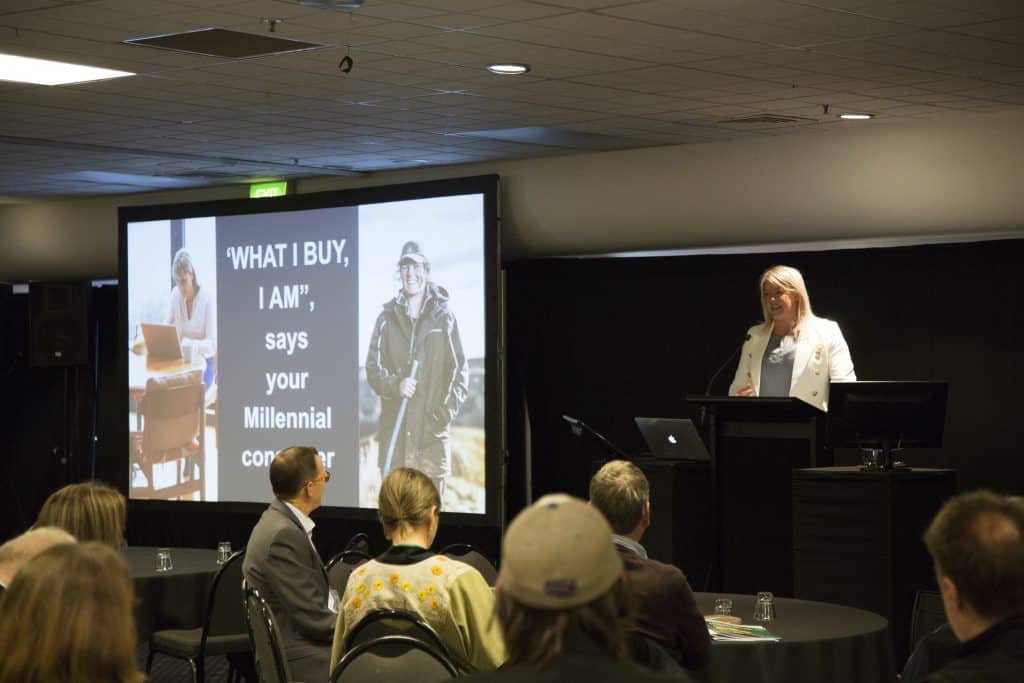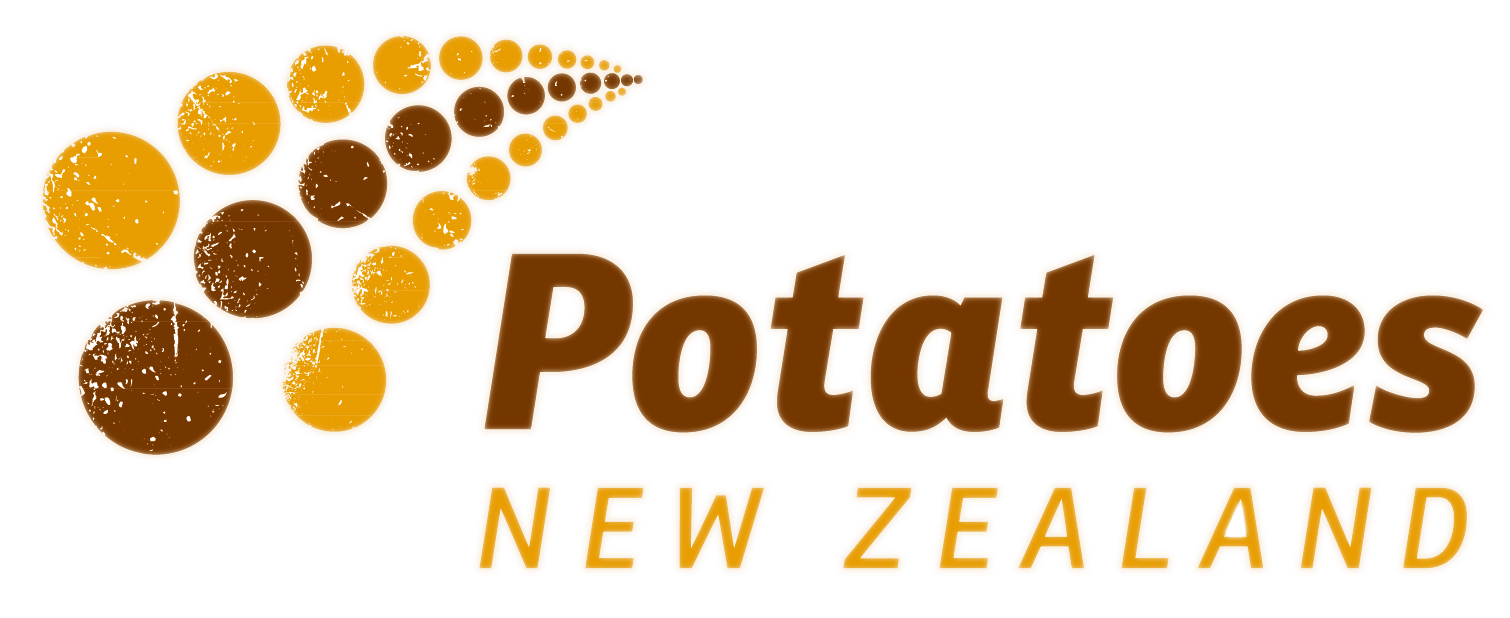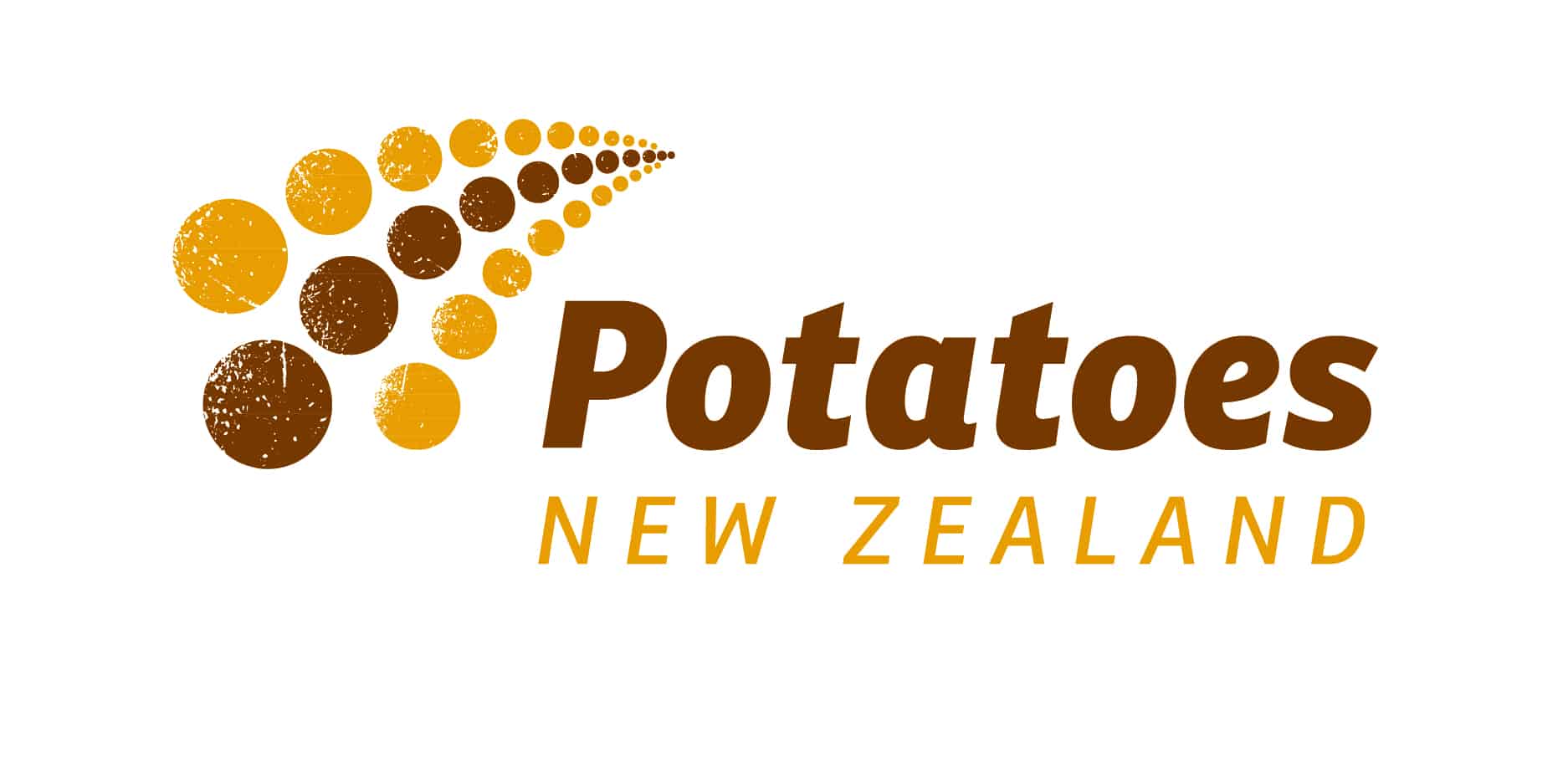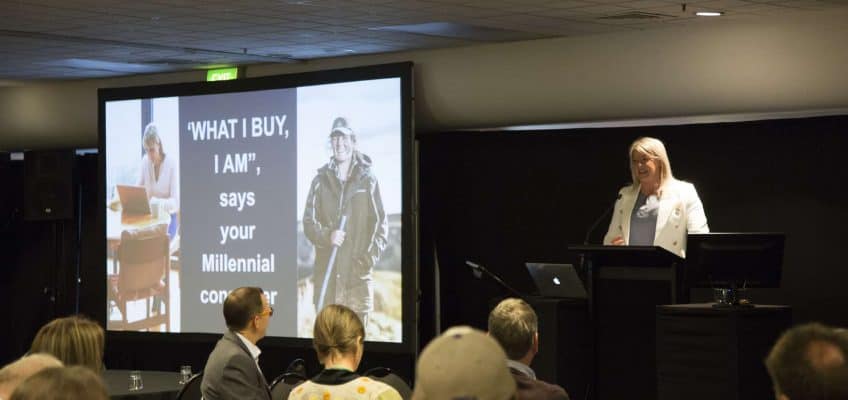By Heather Chalmers
The breakdown of the traditional media model is an opportunity for growers to tell their own stories to consumers and engage them directly, says agri-food broadcaster and commentator Sarah Perriam.
“We can take control of our story, rather than relying on media to do it for us.
“Media are not the gatekeepers anymore,” she told Potatoes New Zealand Inc’s conference in Christchurch.
“As brands go direct to the consumer it is about being able to control the story-telling just as much as it is about delivering value back to the grower.”
Growers face a raft of issues including soil and water quality, biosecurity, climate change, changing diets and uncertainty over tightening regulations. At the same time, a growing rural-urban divide means many consumers don’t understand the complexity of producing food in a sustainable way.
People now live in a “post-truth era”, where it was not about the full truth, but cherry-picking of information to confirm a person’s or organisation’s existing bias.
“We also live in a time of clickbait media, which uses sensationalism to get viewers’ attention.”
This was because social media giants Facebook and Google had sucked the advertising revenue out of traditional media.
“Media need to attract attention in a setting of information overload, driving sensationalism and favouring manipulation by activists,” Sarah Perriam said.
“Animal activist groups Peta and Safe get a lot of media coverage as they have press releases that are media ready and a visual spectacle to go with it.”
Activism resulted from feelings of uncertainty and powerlessness over issues like climate change and how food was produced, so it was important to provide consumers with certainty and a feeling of influence.
“We need to be able to show that we share the same values as our consumers – healthy land, water and people building healthy communities.
“We are too scared to be honest about the challenges that we face and what we have still got to do. We keep going on about what we have already achieved.
“It is about bringing everyone on a journey with us, so they have a feeling of certainty and influence as well as an understanding that challenges are not so easy to overcome.”
Growers should demand more emotionally-charged marketing and invest in key brand partners that will be influencers “because it is not just about what price you will be paid”.
Sarah Perriam was critical of the way Horticulture NZ was structured in individual product groups, each responsible for telling their food production story.
“As the horticultural industry is fragmented, it makes it difficult to achieve a cohesive voice.”
A big restriction was New Zealanders’ culture of humility.
This was highlighted by the saying: “the kumara does not speak of its sweetness”.
“That is wonderful, but if you don’t tell me how sweet it is, why should I give you more money.
“It is an engrained cultural issue that we are facing, among a raft of other challenges,” Sarah Perriam said.
